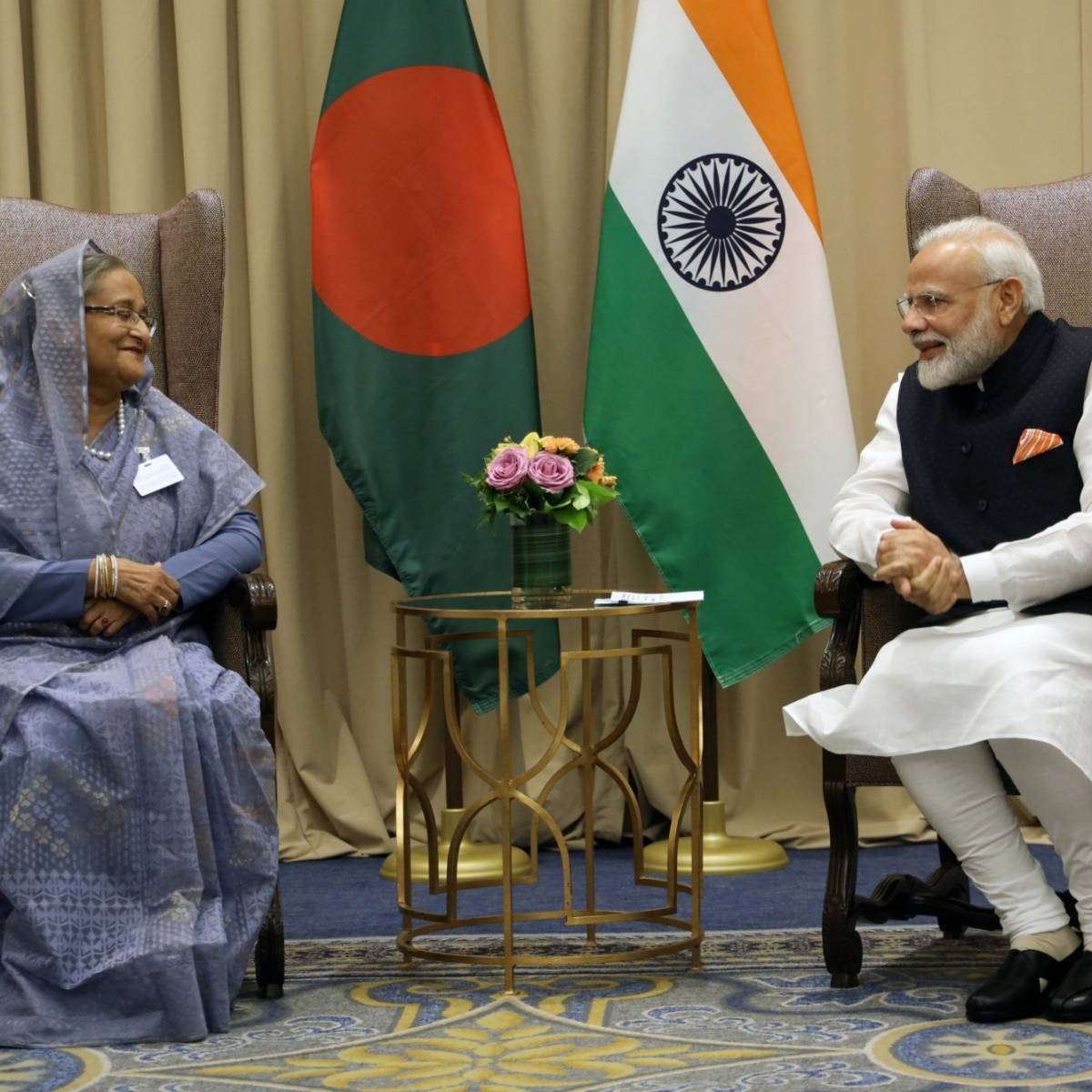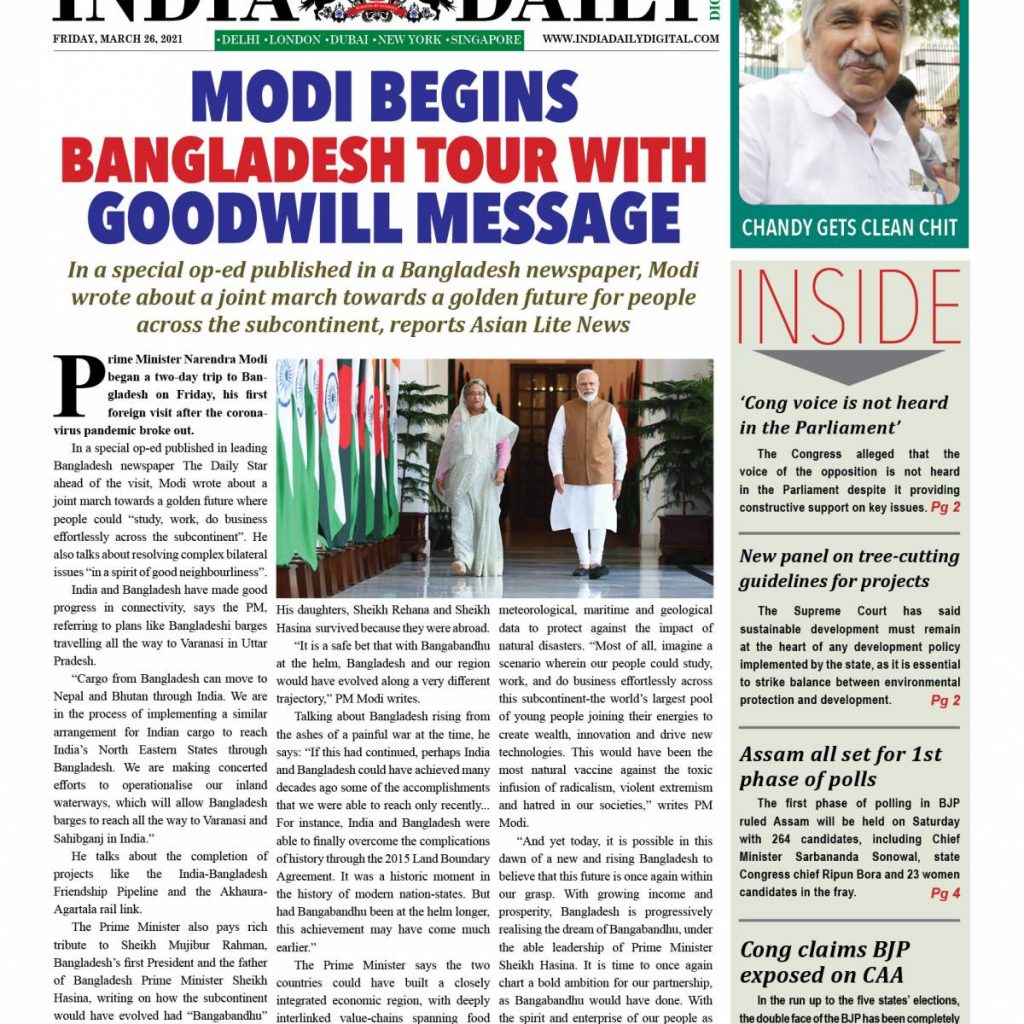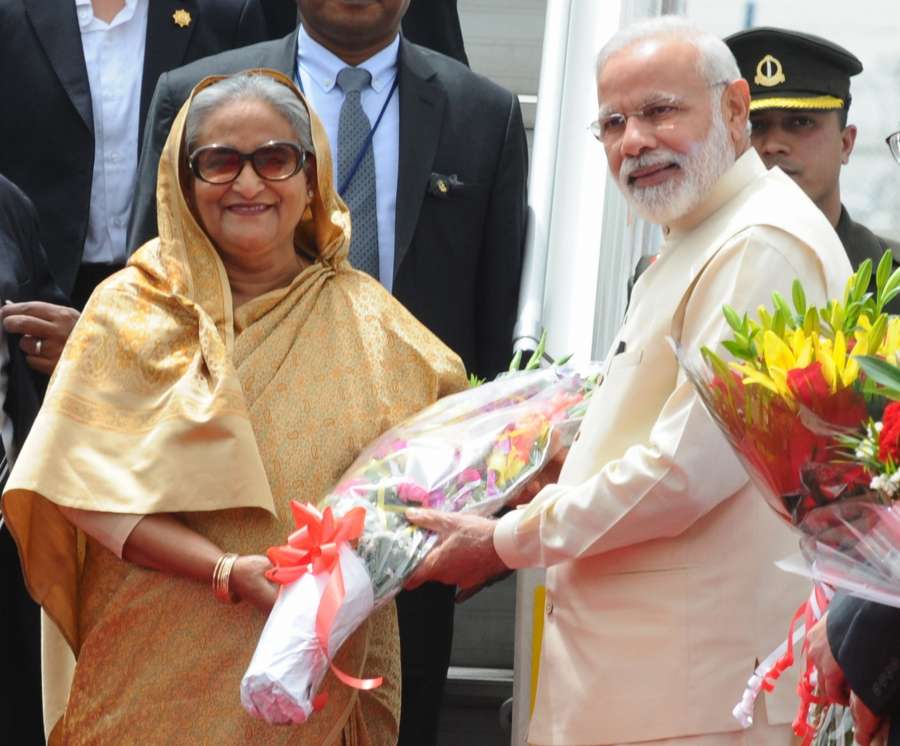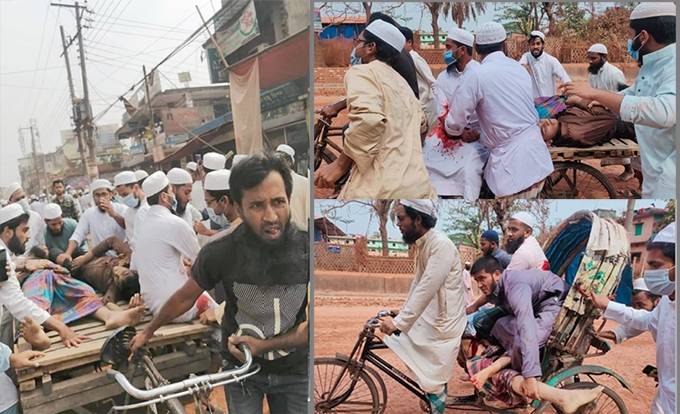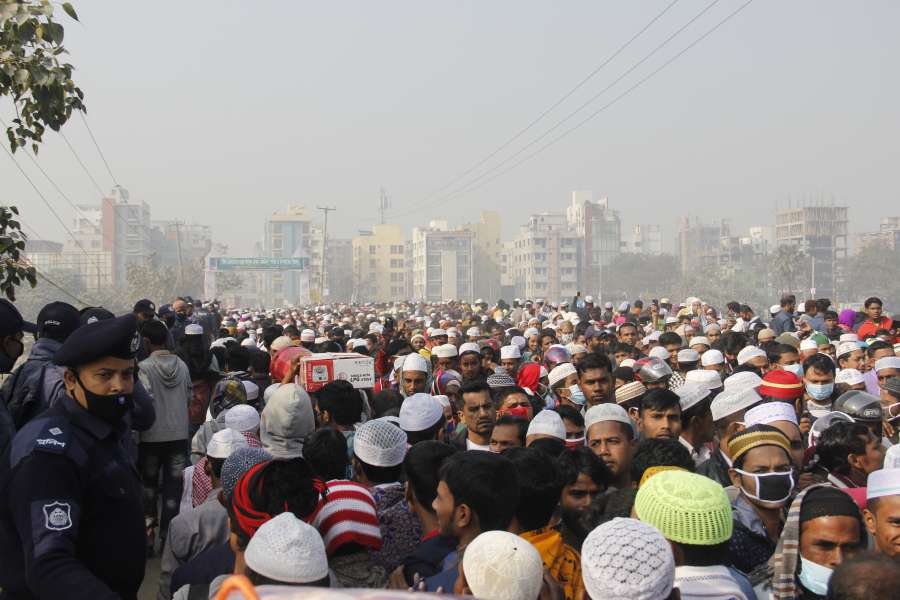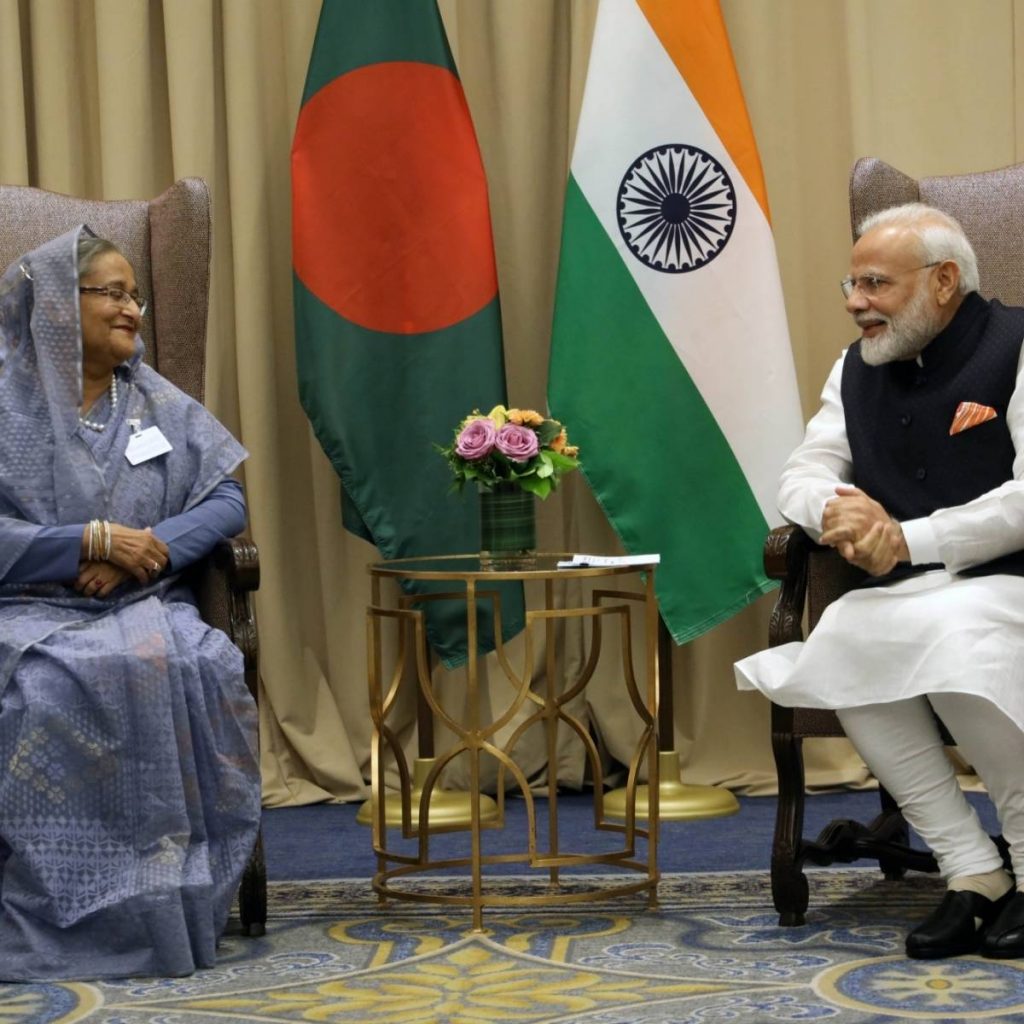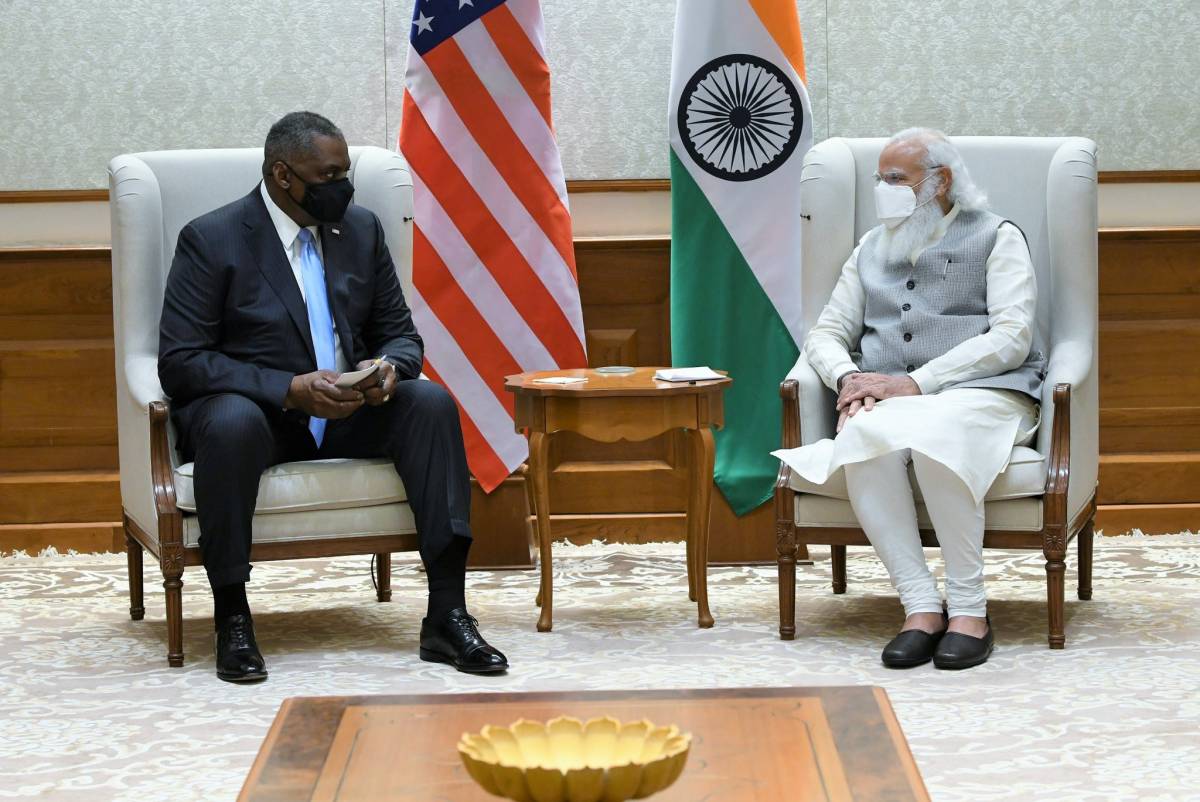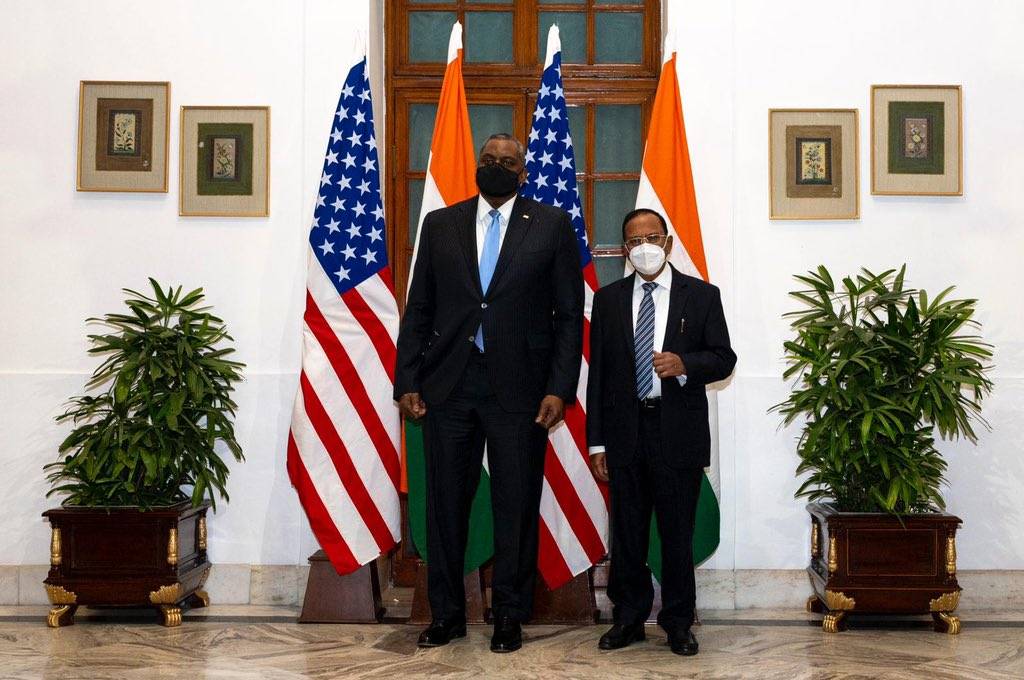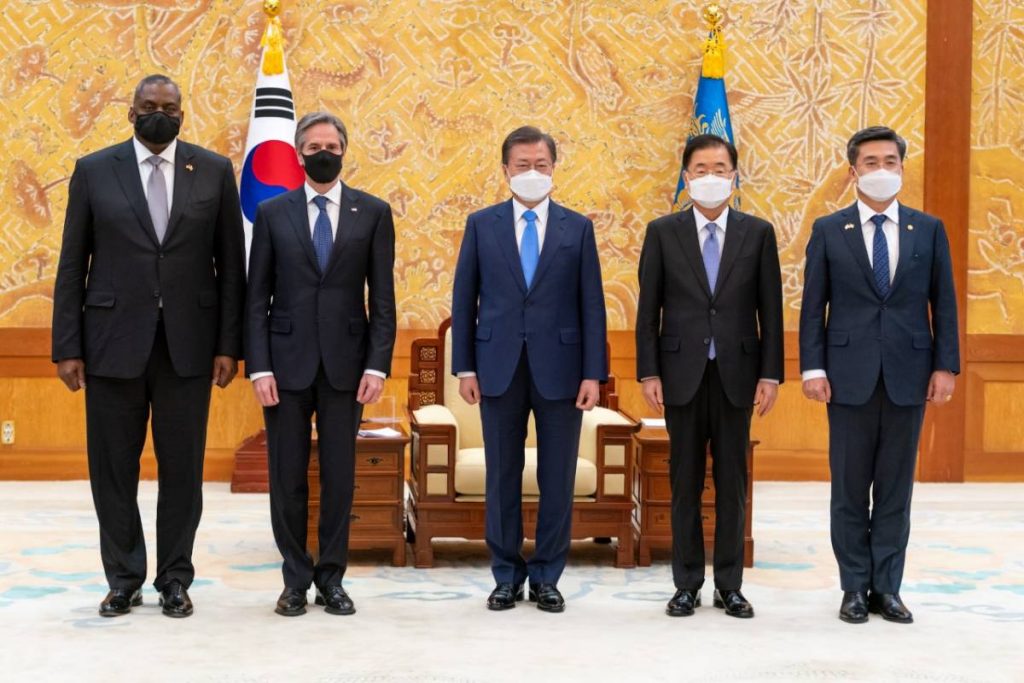After wrapping a very successful visit to Bangladesh on March 28, India’s Prime Minister Narendra Modi has a hectic schedule of foreign visits…reports Asian Lite News
The Indian Prime Minister has atleast five foreign visits lined up till December this year. Narendra Modi’s two-day visit to Bangladesh to celebrate its 50th year of independence and the birth centenary of ‘Bangabandhu’ was his first visit abroad after 14 months.
Reports suggest that Modi will visit France in May during the second leg of his tour to Europe to attend the India-EU summit, to be held on May 8 in Portugal. The PM will be visiting Britain for two days from June 11 for the 47th G-7 summit at Carbis Bay. Modi is likely to also attend the Summer Olympic Games Opening in Tokyo on July 22-23. Reports also suggest that Modi will be visiting Denmak in December to attend the second India-Nordic Summit.
Modi’s visit to Paris is an indicator of growing strategic ties with France including its collaboration in Indo-Pacific region. French Foreign Minister Jean-Yves Le Drian will be in India for a two-day visit from April 13. Drian is expected to participate in the Raisina Dialogue and India-France-Australia foreign ministers trilateral meet.

Modi’s visit takes place at a time when Paris and New Delhi have increased engagement at multiple levels including cooperation in Covid-19 related-issues and defence ties. Modi had last visited France in 2019 as French President Emmanuel Macron’s invitee for the G7 summit in Biarritz. As part of its engagement, Indian ships are a part of France-led La Perouse exercises in the Bay of Bengal from April 5-7. The exercise will involve France plus Quad naval ships coming together for the first time.
Also read:61 lakh Indians hit by Facebook data leak
Also, France has also delivered 21 out of 36 contracted Rafale jets to India and more deliveries are likely to follow in April and May.
The foreign ministers of India, France and Australia will hold a trilateral dialogue in New Delhi on April 13 where they are likely to discuss steps to strengthen maritime security and collaborate on shared challenges in the Indo-Pacific region.
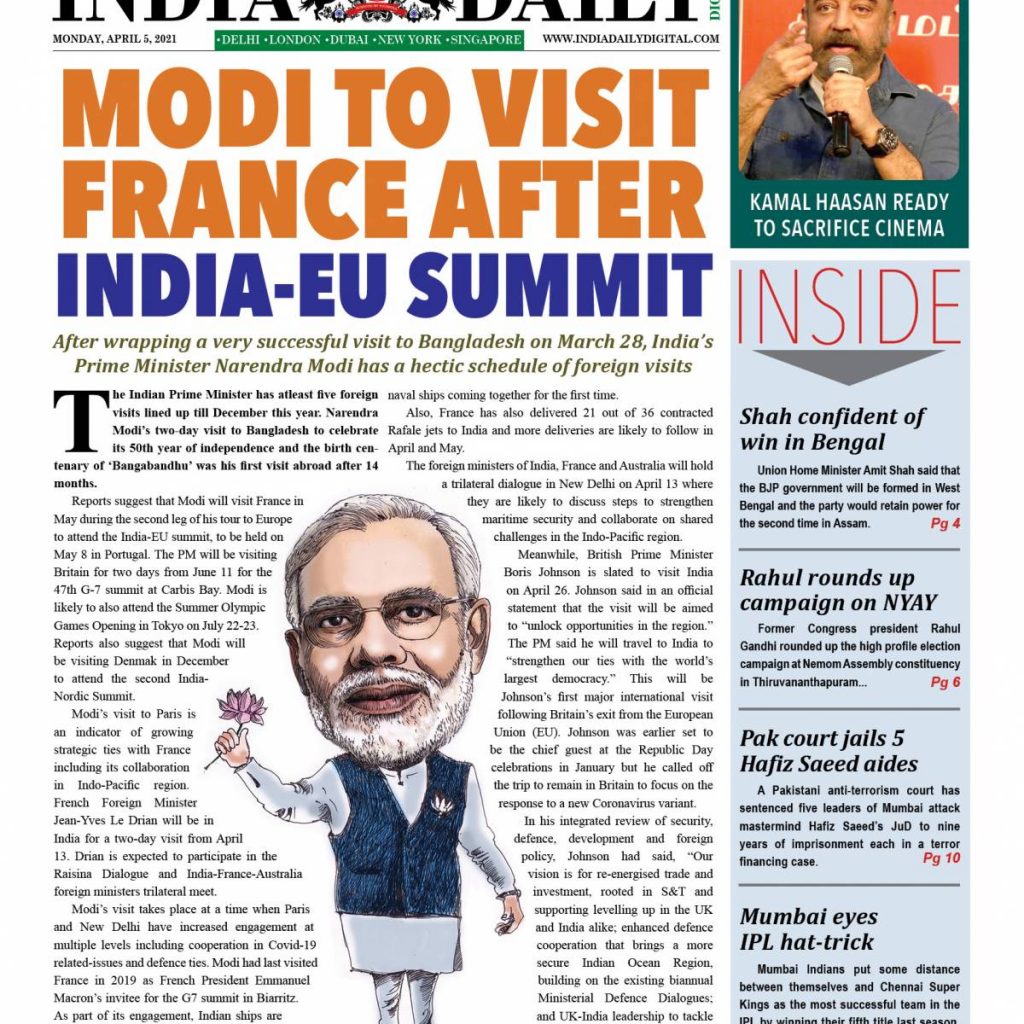
Meanwhile, British Prime Minister Boris Johnson is slated to visit India on April 26. Johnson said in an official statement that the visit will be aimed to “unlock opportunities in the region.” The PM said he will travel to India to “strengthen our ties with the world’s largest democracy.” This will be Johnson’s first major international visit following Britain’s exit from the European Union (EU).
Johnson was earlier set to be the chief guest at the Republic Day celebrations in January but he called off the trip to remain in Britain to focus on the response to a new Coronavirus variant.
In his integrated review of security, defence, development and foreign policy, Johnson had said, “Our vision is for re-energised trade and investment, rooted in S&T and supporting levelling up in the UK and India alike; enhanced defence cooperation that brings a more secure Indian Ocean Region, building on the existing biannual Ministerial Defence Dialogues; and UK-India leadership to tackle global challenges like climate change, clean energy and global health.”


